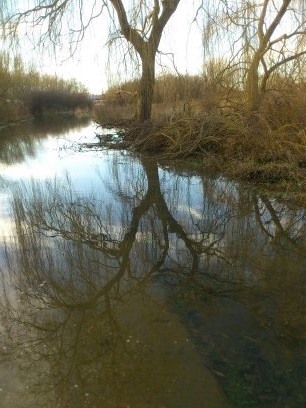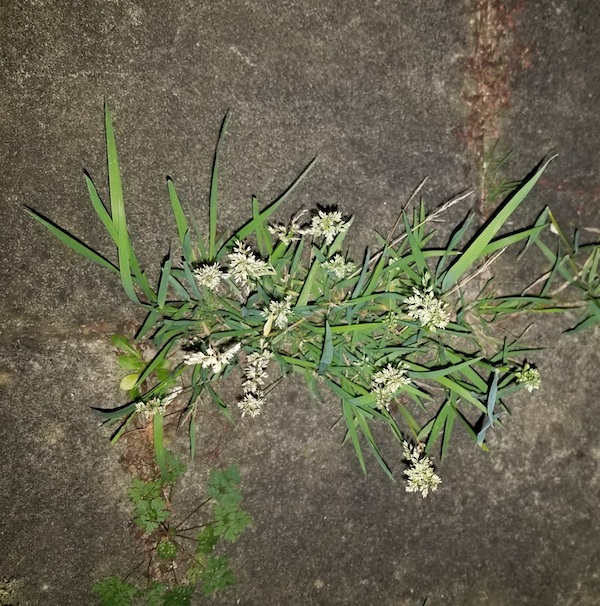UK politics has felt like a whirlwind over these past few months. From Boris Johnson’s resignation, Liz Truss becoming Prime Minister, the death of Queen Elizabeth, and now the appointment of Rishi Sunak as Prime Minister following Truss’s resignation – it has been hard to keep up.
Harder still has been sitting with the knowledge that from my position in the UK I am aware of events happening all over the world, such as the droughts and famine in the Horn of Africa, or the protests for gender equality in Iran, and yet I am not seeing any significant reporting of these in the mainstream media.
Living in the Dissonance
I am increasingly feeling an acute sense of dissonance, both within my own self and in the world around me. On a personal level, I am noticing this as burgeoning feelings of dread, despair and anger when I read the news or talk and think about issues of ecological breakdown and global inequalities. These feelings come through sporadically, like waves crashing against the shore.
I am also aware of myself taking on more and more work, unconsciously, so that it is as though I emerge from a wave only to have provided myself with the mirage of an island. It is as though my psyche, unable to fully process and bear the full weight of the reality of climate injustice, is seizing on my work roles as evidence of ‘business as usual’.
This is a state of being I now think of as living in the dissonance, and it is exhausting. It feels distinct from burnout, when the mind and body exhaust their resources in the face of prolonged stress and enforce a break. It is instead a jarring discordance, an awareness of my mind shifting between states without the capacity to interrupt. My unconscious accumulation of work is a defensive structure, providing a familiar framework which belies the sense of collapse in the broader world.
These kinds of defences offer protection for the ego against perceived threats and the risk of psychological breakdown. However, they can also be maladaptive and even harmful. The defence itself can cause damage, such as is the case when sleep and replenishment are neglected in favour of more work; harm can also be caused by the effect of disregarding reality, such as no longer attending to climate breakdown because all mental capacity is taken up by work.
Similarly, the structures of Western power seem to also be currently entering a defensive mode of functioning. These societal defences are proving equally harmful.
Culture War as Social Defence
 It is my view that so-called ‘culture war’ dynamics are a social defence against impending changes to the Western capitalist way of life, as the impacts of climate breakdown become ever more apparent through heatwaves and flooding even in countries of the Global North, as well as viral outbreaks like Avian influenza and Covid-19.
It is my view that so-called ‘culture war’ dynamics are a social defence against impending changes to the Western capitalist way of life, as the impacts of climate breakdown become ever more apparent through heatwaves and flooding even in countries of the Global North, as well as viral outbreaks like Avian influenza and Covid-19.
Across the Global North, including here in the UK, the military-industrial complex is being deployed against refugees and activists alike. Recently revealed reports showing British and French border patrol personnel passing responsibility back and forth while refugees drowned have been shocking and distressing to read. The UK Government earlier this year passed new legislation giving the police further powers to arrest non-violent protestors, and even those suspected of intending to protest. Meanwhile mainstream media continues to be used as another arm of the state, stoking fear and division to the extent that a member of the public recently bombed a refugee detention centre.
There is an emerging sense of dis-ease among the global population. In the UK, this is alternately being constructed as a response to the so-called cost of living crisis, to the lingering effects of EU ‘red tape’ which Brexit is in the process of cutting, and – rarely – to the ecological and biodiversity crisis. Again, defences are being activated, creating an illusion of control. Planning laws and environmental protections are being scaled back, with ‘Low Tax Investment Zones’ already mapped out across the UK, including land which currently falls within the boundaries of national parks.
But whereas national borders are being strengthened against other human beings seeking succour, boundaries within countries, like those around woodlands, are being eroded. Across Europe and elsewhere, woodlands are felled and replanted with faster growing trees which can then become part of greenwashed biofuel markets; Indigenous peoples in the Amazon are endangered as their homelands are similarly eradicated in favour of profit-hungry monocultures.
I sit with the discomfort of this knowledge and my own internal borders shift, eddying. Being aware of the many multivaried aspects of ecological breakdown means constantly challenging myself, as a product of the Western world in which I have grown up. It is an alienating process in many ways.
Looking beyond the human
 I come back to thinking of dissonance when I consider how anthropocentric this positioning is: people are everywhere in the discourse around climate breakdown – displaced peoples, erased peoples, silenced peoples, exploitative peoples, desperate peoples.
I come back to thinking of dissonance when I consider how anthropocentric this positioning is: people are everywhere in the discourse around climate breakdown – displaced peoples, erased peoples, silenced peoples, exploitative peoples, desperate peoples.
Yet these environments being exploited and degraded to the point of breakdown are not sterile spaces created by and for humans, any more than the mother’s (or therapist’s) body and mind are omnipotently brought into existence by the infant. The soil, plants, fungi and animals with which we share this planet – the nonhuman life – are three-dimensional organisms with their own histories, relationships and ways of being which both intersect with and diverge from the lives of human beings.
In opening up my own thinking around the non-human, I must acknowledge that it is predominantly the very same Global North mindset that shaped my own development which also excludes awareness of and engagement with the supra-human world. Indigenous folks are well aware of our connections with all other life forms, as were pre-capitalist humans.
I return then to my own defence of taking on work, of cleaving to my societal norms no matter how damaging they may be, and I wonder if I am not just defending against ecological breakdown. I wonder if I am also defending against the non-human parts of myself, the parts which connect with those intersecting points between lifeforms which are messy and disruptive and creative. The self-organising parts which simply live.
In Western society’s clamping down on humanities and arts degrees, the policing of freedom of speech and demonstration, the militarised control of how and where people can be, I see this same resistance to engaging with and embracing the aspects of the world which are more uncanny.
The image greeting visitors to the new website of the Climate Psychology Alliance offers some hope in positioning myself differently in relation to these thoughts: a plant growing through a crack in the ground. The human and non-human worlds intersecting. Perhaps these boundaries too are artificial? It seems to me that what we call human and non-human exist simultaneously, indeed must exist simultaneously, both without and within.
Winnicott wrote that there is no such thing as a baby, indicating that the baby could not exist without its environment. Our planetary environment is made up of myriad lifeforms; we could not be human without the non-human, and the only healthy ecosystem is a biodiverse one. I am coming to believe that this goes for individuals and societies, as well as the broader world.
Jenny O’Gorman (she/they) is a Psychodynamic Counsellor, writer and climate activist. They currently work with adults and adolescents in Gloucestershire, and consults with small businesses focusing on sustainability & staff welfare. Jenny holds a role on the Organising Panel of the Birkbeck Counselling Association’s monthly psychodynamic forum and sits on the board of directors of the Climate Psychology Alliance. Their academic writing has been published in the British Journal of Psychoanalysis and in Psychodynamic Practice. Her fiction, poetry and creative non-fiction has been published widely, most recently in Sonder Magazine, the three From One Line anthologies, Crow Calls vol. 3, and From Whispers to Roars magazine. Jenny is on Twitter @drjenny88

